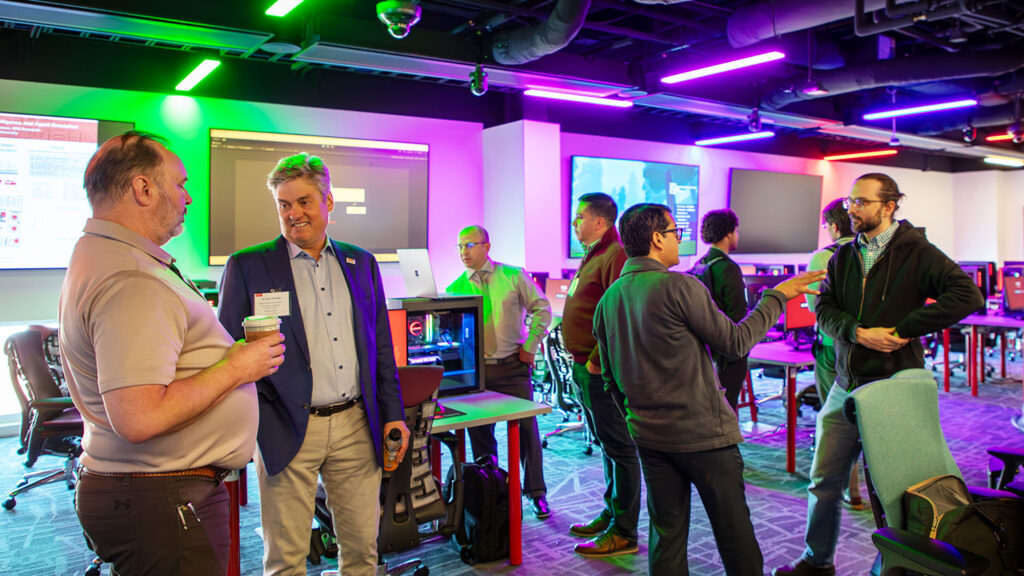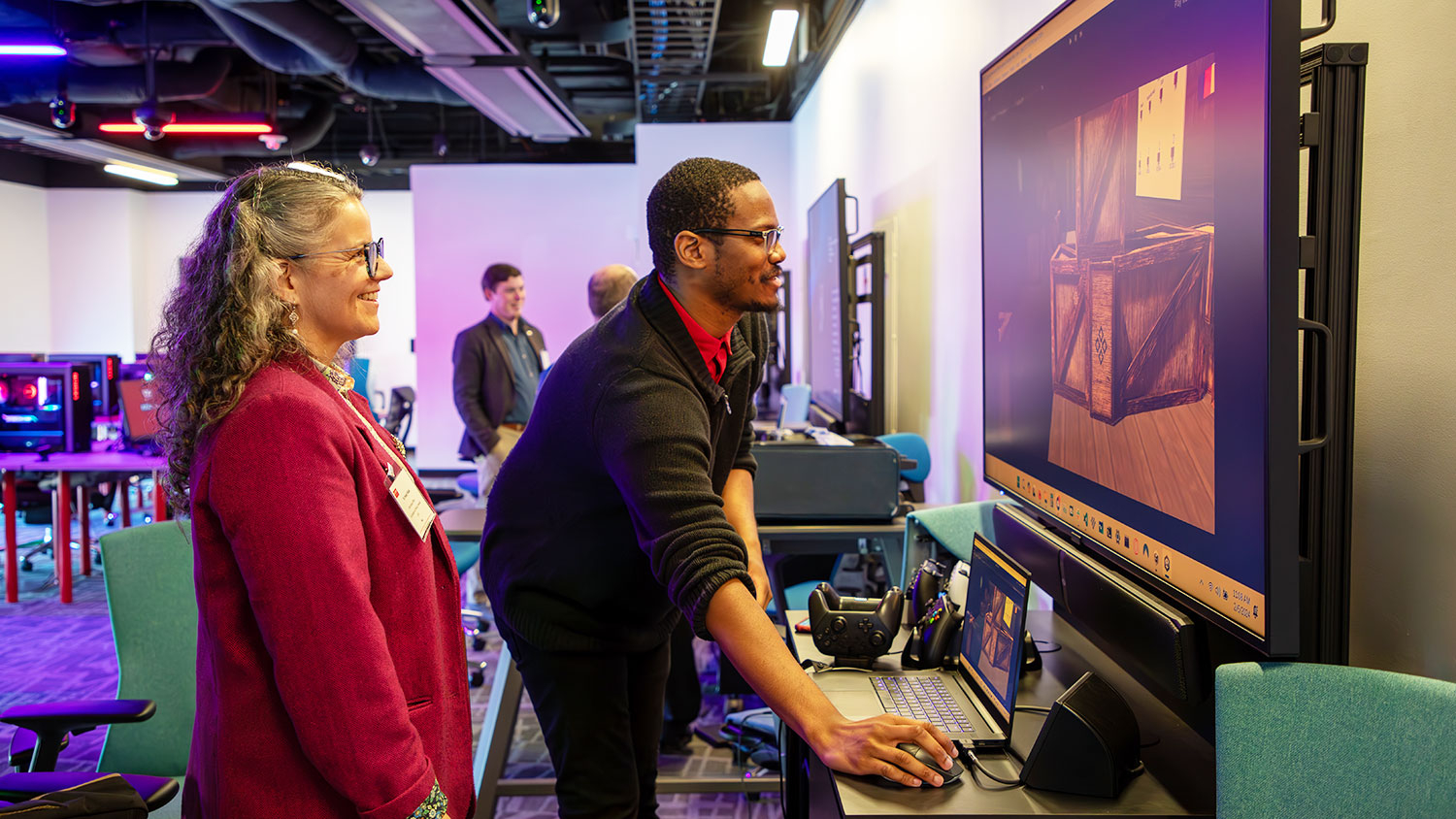The Call of Duty series, Battlefield, Arma: Video games that recreate combat are popular, and there’s no shortage of them.
The market for games that simulate the complex logistics behind the battles is smaller, but their impact could be massive. Gameapalooza, a recent event at Hunt Library, brought together researchers, game developers and military officials to explore gaming’s potential as a training tool.
The event was four years in the making, with origins in a blur of 12-hour days that Robert Handfield, executive director of the Supply Chain Resource Cooperative, spent helping the military source personal protective equipment at the beginning of the COVID-19 pandemic.
Invited by Lt. Col. Dan Finkenstadt to serve on the Department of the Air Force’s Acquisition Task Force in early 2020, Handfield saw supply chains break down at the worst possible time. And he saw a field ripe for game-based training and simulation.
“Serious gaming is really missing in a lot of the military’s training,” says Handfield, who is also Bank of America University Distinguished Professor of Operations and Supply Chain Management. “They do it for things like submarines, but they don’t do it for things like supply chain resiliency. And that’s a big concern right now.”
Handfield, Finkenstadt and Arnav Jhala, associate professor of computer science at NC State, set out to remedy that. In 2022, they co-authored a study on gamifying defense acquisition training. That report described a methodology for developing training games; on Feb. 6 and 7, Gameapalooza put it into practice.
At the Visualization Lab at Hunt Library, scholars, game developers, Air Force officials and military strategists gathered to share ideas and see demonstrations. Among the demos were a Minecraft-based leadership development game and Mage Duel, a role-playing game that helps airmen learn foreign languages.

Artificial intelligence was a topic of discussion, too. Large language models could quickly produce customized, realistic training scenarios: conflicts that disrupt global supply chains or complex negotiations over expensive weapons systems, for example.
“Air Force officers in these situations are often under pressure to make decisions in the heat of the moment,” Handfield says. “The stakes are high. We want to simulate those decisions so people are prepared.”
Leaders at the Air Education and Training Center lauded Gameapalooza as “a pivotal moment in the cultural shift towards embracing gamification in military training.” Handfield agreed and said he expects it to become an annual event.
This post was originally published in Poole Thought Leadership.
- Categories:



